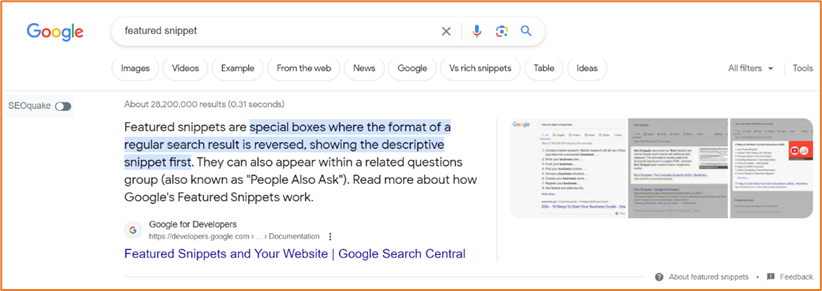Navigating the ever-changing SEO landscape can seem like a daunting task, with search engine updates creating a sense of uncertainty for business owners. Contrary to the popular belief that SEO is a mysterious ‘dark art’, the reality is that SEO has never been more straightforward. By implementing the right strategies in the correct sequence, your SEO performance need not be unduly affected by these updates.
So, what are the key SEO principles to focus on?
1. Enhance Your Website’s Performance
Before delving into typical SEO efforts like content creation and link-building, it is imperative to ensure that your website aligns with search engine requirements. Prioritise aspects such as quick page loading, responsiveness, and the absence of technical errors like broken pages. These elements contribute significantly to the user experience, a crucial factor for search engines.
For instance, the introduction of core web vitals in 2021, under Google’s Page Experience Update, underscores the importance of factors like page load speed, responsiveness to user interaction, and the time required for stability. Beyond impacting user experience, page load time is a ranking factor that can influence SEO. Addressing issues such as slow-loading pages and optimising large files like images can enhance website speed. Seek assistance from your website maintenance team for these optimisations.

While numerous factors influence website optimisation scores, a comprehensive onsite SEO guide can offer further insights.
2. Write High-Quality, Original Content
Google continues to assess content using the EEAT algorithm, focusing on Experience, Expertise, Authority, and Trust. These criteria are integral to Google’s Search Quality Evaluator Guidelines. Therefore, it is essential to deliver content that is not only original but also comprehensive and enduring.
Create content that captivates and adds value, encouraging users to share it within their networks. Original content positions your brand as a thought leader, a signal appreciated by search algorithms. Aim for content that thoroughly addresses user queries, demonstrating authority in your niche.
Opt for evergreen content that maintains relevance over time, steering clear of seasonal or time-sensitive topics. Such content offers enduring value, attracting sustained traffic. Select topics that contribute lasting value without requiring frequent updates.

3. Target Relevant Keywords
Effectively using keywords is crucial when creating quality content. Identify primary and secondary keywords for your web pages, gaining insights into customer search patterns, including competitor keyword rankings. Your primary keyword, along with related variations, should be incorporated into the page title, description, and URL, highlighting its relevance to the page’s subject and your company’s offerings.
As Google increasingly adopts a local-first approach in search result rankings, incorporating local keywords becomes pivotal, especially for service-oriented businesses limited to specific areas. Include local placenames to enhance the relevance of your content to regional audiences.
4. Structure Your Content Effectively
With AI now playing a central role in Google’s operations, understanding and addressing user search intent is more critical than ever. Targeting featured snippets, positioned at the top of Google’s search results, requires optimising content to directly answer user queries.

Given the surge in voice-activated searches through applications like Google Now, Cortana, and Siri, the emphasis is on addressing specific user questions concisely. Content that both poses and answers questions is more likely to secure a featured snippet. Be mindful of zero-click searches, where users obtain information without clicking through to a website.
5. Optimise Your Page Title and Meta Description
While not direct ranking factors, your page title and meta description play a crucial role in influencing click-through rates, which indirectly impact rankings. Craft a compelling meta description under 155 characters, incorporating your target keyword. Clearly communicate your page’s content, uniqueness, and relevance while also ensuring that each page has a unique title and meta description.

6. Use Concise But Descriptive URLs
Refining your URL structure can significantly impact on-page SEO with minimal effort. Aim for clear, concise URLs that are easy to understand, include your primary keyword, and are under 70 characters. Following any URL changes, monitor performance and implement redirects cautiously to avoid traffic fluctuations.
7. Cultivate High-Authority Backlinks
In the evolving landscape of SEO, quality prevails over quantity when it comes to backlinks. While links remain a critical ranking factor, focus on securing links from high-authority websites. Treat each link as a recommendation, with the authority of the linking website boosting the perceived importance of your content.
Various strategies exist for generating backlinks, each playing a role in the long-term success of SEO campaigns. Stay on top of emerging trends and continually refine your approach.
By aligning with these SEO principles, FSE Digital aims to empower businesses to thrive in the dynamic online landscape. Our commitment to delivering valuable, authoritative content reflects our dedication to your success in the digital world.

